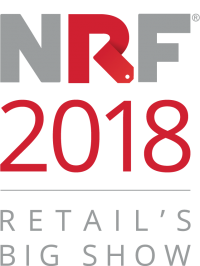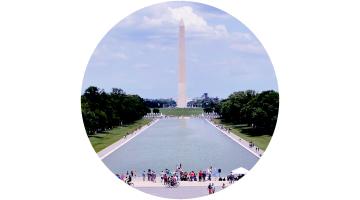
For more from NRF 2018: Retail’s Big Show on January 14 – 16 in New York City, visit the official recap.
Hamdi Ulukaya never thought he would end up running a corporation in the United States. Growing up in a family of dairy farmers in eastern Turkey, the CEO of Chobani dreamed of making a career in public service. A few decades later, Chobani is a billion-dollar company built on a firm footing of social responsibility and inclusive company culture. On the stage at NRF 2018: Retail’s Big Show in New York City, Ulukaya recounted the story of building the business and its unique corporate culture to Terry Lundgren, recently retired executive chairman and chairman of the board of Macy’s Inc.
In 2005, Ulukaya bought a closed-down Kraft factory in upstate New York on a whim, inheriting five employees. With no finances, Ulukaya only had one idea: Paint the walls of the defunct factory. It was “one of the best things I’ve ever done,” he said, “because along the way, we found a way.”
Ulukaya had been surprised at the quality of yogurt in U.S. grocery stores; the high amount of sugar in the products was repeatedly put down to customer preference, though through his observations and conversations with consumers, he found availability to be the issue — if consumers had access to better yogurt, he knew it would fly off the shelves. To make it happen, Ulukaya was deliberate about branding and product placement: Chobani products were placed in main dairy aisles instead of specialty aisles, and the Chobani cup was covered in bright images of fruit and designed to stand out with a unique shape. “It was very different for people to pick up,” Ulukaya said, “but when they ate it, the game was done.”
The business reached success quickly; Chobani reached $1 billion dollars in earnings in five years, and expanded the number of employees from five to 2,000 in just a decade. The company also gives back generously to the communities in which it operates, including building a Little League baseball stadium in the small town where it all began. Although these communities are home to very different people and the issues of each place may vary, “when it comes to the core level,” Ulukaya said, “we’re family” — and businesses “have to solve problems.” Ulukaya was named a Giver on The List of People Shaping Retail’s Future 2018 at the NRF Foundation Gala in January.
An inclusive company culture is key to the business. In 2016, Chobani launched an innovative profit-sharing program, recognizing each employee’s contribution to the company’s success. Having had no business experience prior to Chobani, Ulukaya said he believed that every employee should feel at home in the workplace.
The commitment to community is also reflected in the company’s food startup initiative. The Chobani Incubator, a program that helps more innovators bring better food to wider communities, is Ulukaya’s attempt to share his team’s unconventional knowledge. Each year, innovators who want to change the world through good food get access to the Chobani factory and its resources, including meetings with Ulukaya. The best advice he has for leaders? “Being there is extremely important for CEOs and founders,” he said: A culture is built by doing, not through ads or speeches.
The Chobani way: Hamdi Ulukaya's principled journey in building an empire
For more stories from NRF 2018: Retail’s Big Show, visit the official recap page.


